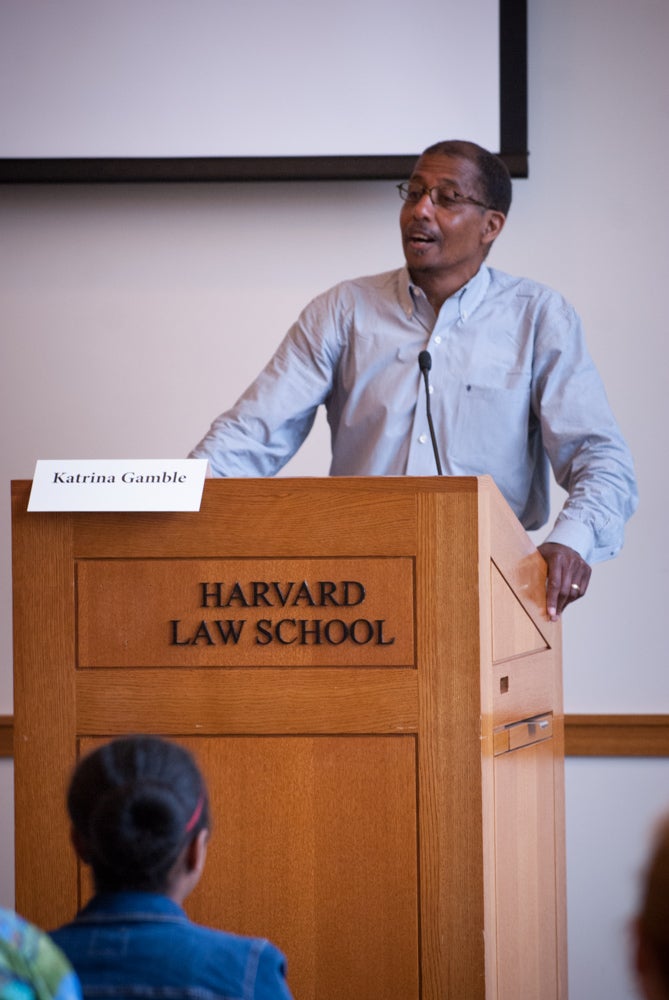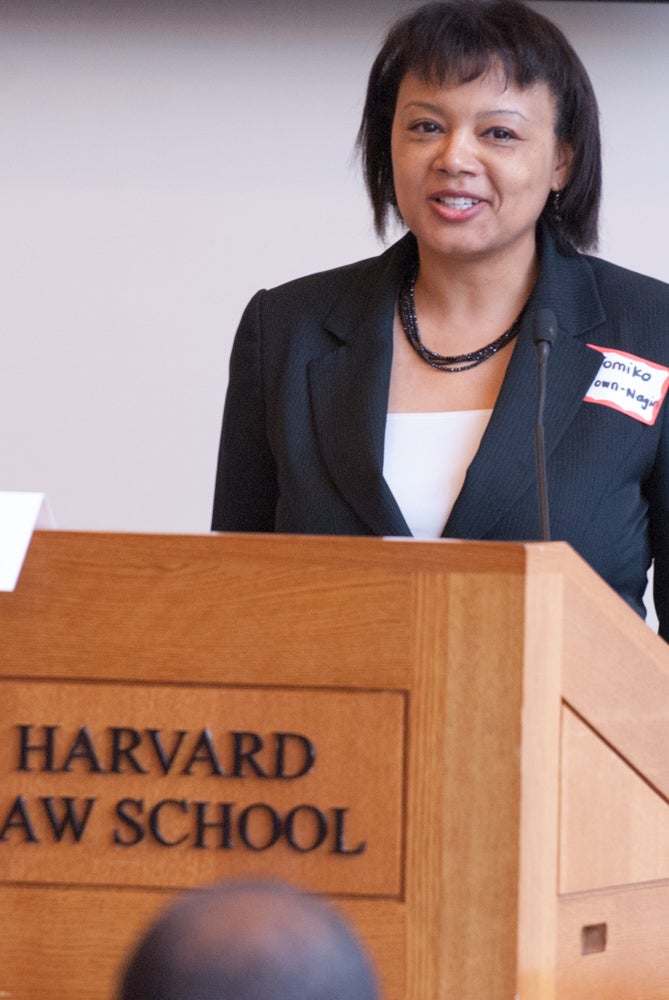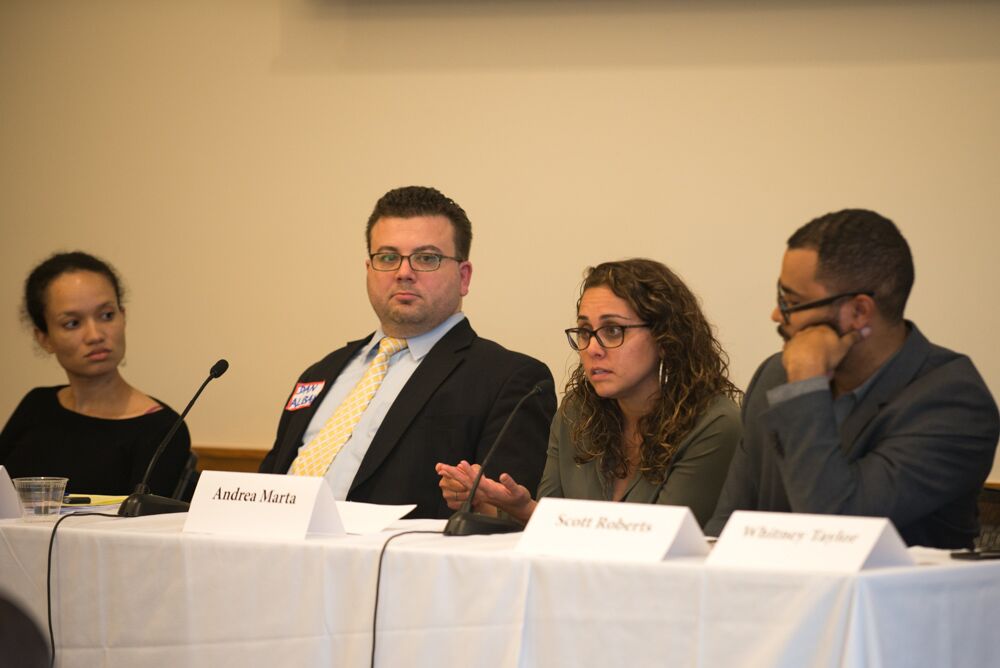The Charles Hamilton Houston Institute for Race & Justice at Harvard Law School joined forces with the ACLU of Massachusetts to host a daylong conference at Harvard Law School in June, titled “Redefining the Role of the Prosecutor within the Community.” Speakers ranging from former federal judges and assistant district attorneys to activists and scholars convened to discuss the power and scope of prosecutorial functions, the interaction between democratic accountability and prosecutors’ work, how prosecutors make decisions, and possible new models for prosecution.

Credit: London Parker-McWhorter David Harris, managing director of Harvard Law School Hamilton Houston Institute for Race & Justice, kicked off the “Redefining the Role of the Prosecutor within the Community” conference with opening remarks.
David Harris, managing director of the Houston Institute, emphasized that the conference represented the intersection of two Houston Institute projects: the Fair Punishment Project, which employs legal research and educational initiatives to highlight the injustices that result from prosecutorial misconduct, ineffective defense lawyering, and racial bias in the criminal justice system, and Community Justice Acts, which facilities grassroots activism to discuss the impact of policies of divestment and mass incarceration on communities of color. Said Harris, “We’re extremely excited about this new environment, in which the conduct of prosecutors is receiving increased scrutiny, and the opportunity this attention presents for mobilizing communities subjected to the harsh and disparate punishment the policies of the past have engendered.”
Daniel P.S. Paul Professor of Constitutional Law Tomiko Brown-Nagin, who was named director of the Houston Institute in April, highlighted “the importance of the struggle for ethical and fair-minded prosecutors to the long struggle for civil and human rights.” She contextualized the role of prosecutors in communities of color by recalling advice given to her by a mentor early in her career: “Many years ago, I clerked for Judge [Robert] Carter [who litigated Brown v. Board of Education], and I went to him and I said, ‘Judge, what should I and other social justice oriented lawyers do with ourselves in the future? How can we make a contribution? . . . He said to me . . . ‘go and be a prosecutor, because it’s prosecutors who are determining the fates of our communities.’”

Credit: London Parker-McWhorter Tomiko Brown-Nagin, Harvard Law School professor and director of the Hamilton Houston Institute for Race & Justice, highlighted the importance of the struggle for ethical and fair-minded prosecutors to the long struggle for civil and human rights.
Carol Rose ’96, executive director of the ACLU of Massachusetts, elaborated on the unique power prosecutors hold as elected officials. She said, “In the last 20 years almost 77 percent of the prosecutorial races here in Massachusetts have been uncontested and yet responding to the voters is pretty much the only level of accountability prosecutors have in the Commonwealth. [District Attorneys] have tremendous power over various things such as reforming and repealing mandatory minimum sentencing, which here in Massachusetts has . . . a huge racial impact.” In her view, political accountability does not enforce sufficient oversight of prosecutors’ actions because most voters do not understand the scope of a district attorney’s job or that they are elected officials. “We need to have a system where the voters actually understand the importance of their vote and the importance of understanding what prosecutors do.”
The conference was organized by Johanna Wald, director of Strategic Planning and Development for the Houston Institute, and co-sponsored by the ACLU of Massachusetts.
